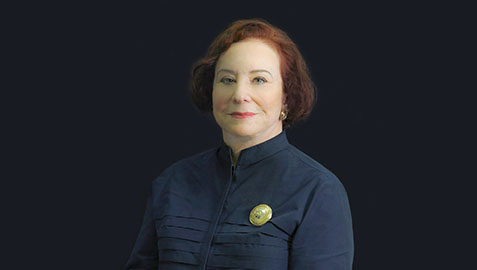The 5 Question Interview: Florence Haseltine

For nearly three decades Florence Haseltine has worked to promote the advancement of women by being at the forefront of health technology and leading the way for advances in contraception research.
From 1985-2012, Haseltine was the director of the Center for Population Research at the National Institute of Child Health and Human Development at the National Institutes of Health (NIH). Her work in women's health and reproductive sciences at NIH contributed to her election into the 1993 class of the National Academy of Medicine.
Haseltine, presidential distinguished professor in The University of Texas at Arlington’s College of Nursing and Health Innovation and executive director of health research, now spends her time focusing on expanding research programs in women’s health, genomics and disability studies.
1. What motivated you to pursue a career in science, medicine and research?
I grew up on a military base, a very scientific community, where my father was a physicist. By the time I was 5, I knew I was going to go to the Massachusetts Institute of Technology and get a doctorate. That’s what my dad had done, so that’s what I was going to do.
2. Why did you decide to specialize in obstetrics and genecology?
I don’t like conversations about death. I felt obstetrics and genecology was a very positive field. I liked it because I could talk to people. I loved delivering babies and liked the mix of medicine and surgery.
3. How has the field changed during the course of your career?
Research institutions weren’t producing very many reproductive scientists, and I decided that we had to change that. I was one of three gynecology researchers at NIH. I decided we needed to have more representation in the research community. I was given that assignment and I took it very seriously. My role at NIH was to elevate obstetrics and genecology into more of an academic profession.
4. You retired and then decided to come out of retirement. Why?
I promised myself I would retire before I was 70, and I managed to do it with three months to spare. I enjoyed my retirement, which I call my gap years, since I never took a break when I was younger. In 2018, I received an invitation from (UTA President) Dr. (Vistasp) Karbhari. Over breakfast, he told me about all the great things that were happening at UTA. I looked at him and said, “Are you recruiting me?” And he said, “Yes.”
5. Why did you choose to come to UTA?
UTA educates for the community and for Texas. It exports to the rest of the world, but the people here feel like it belongs to them and to me that’s really fantastic. I’m really having a great time.